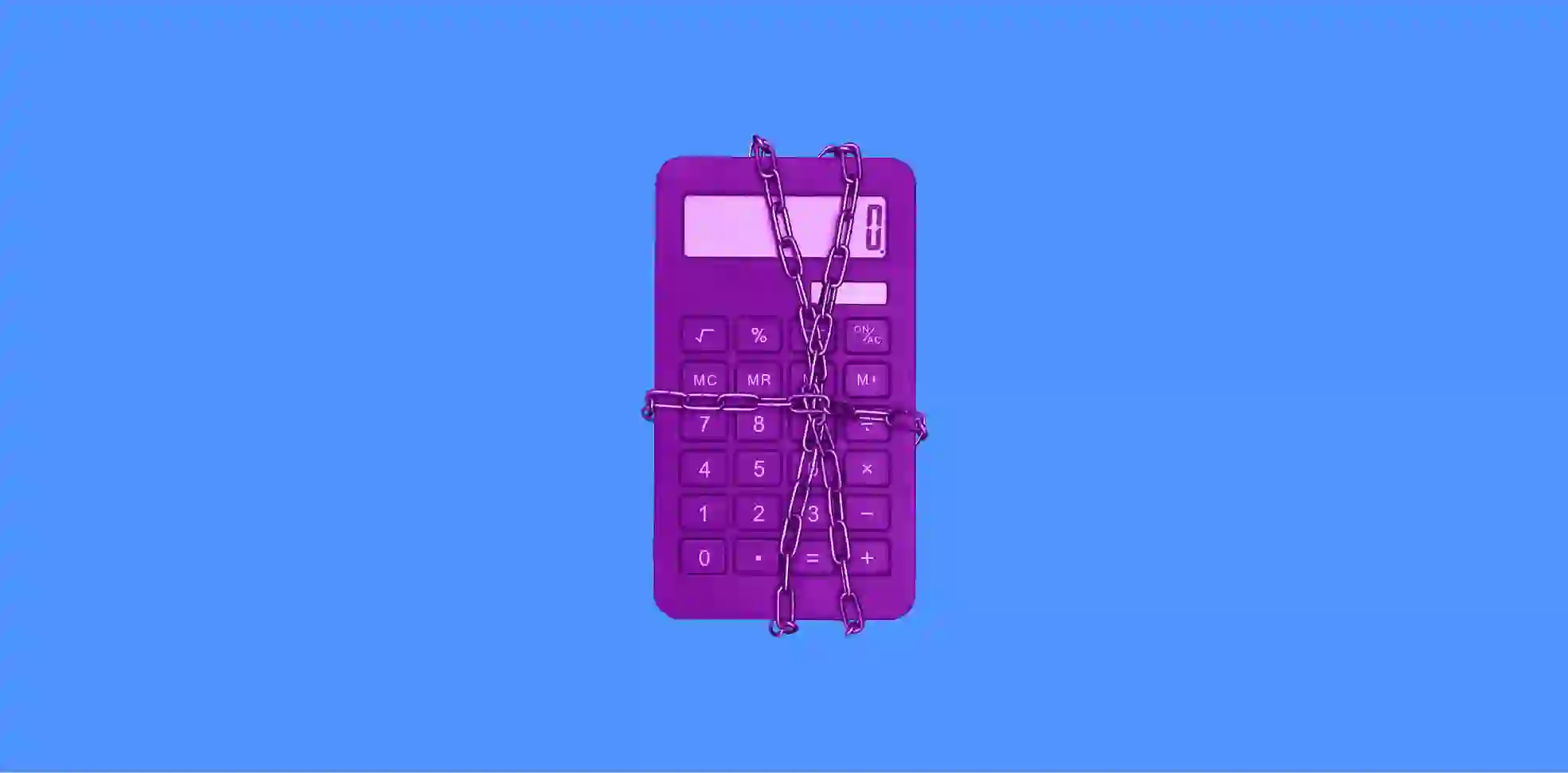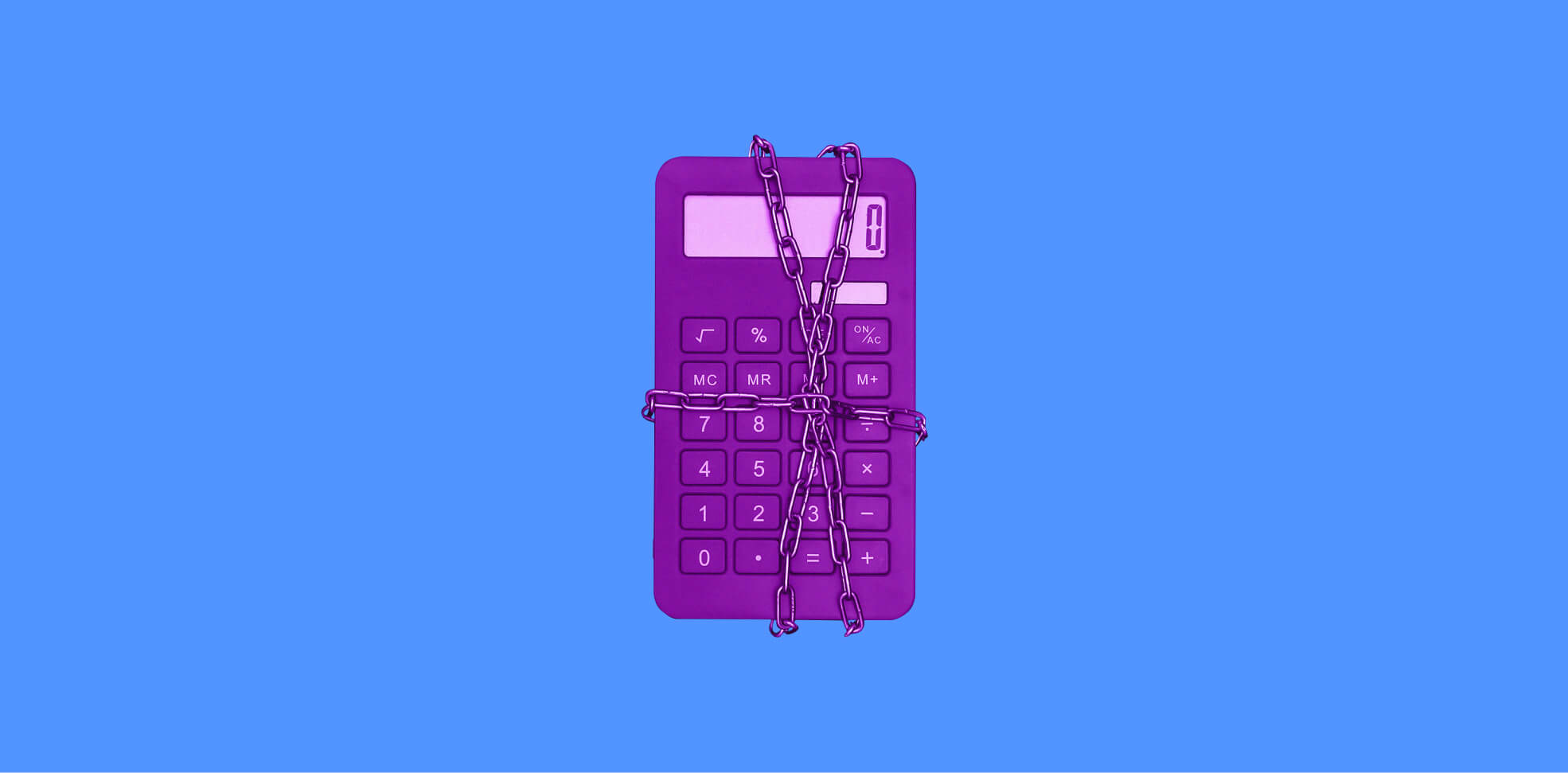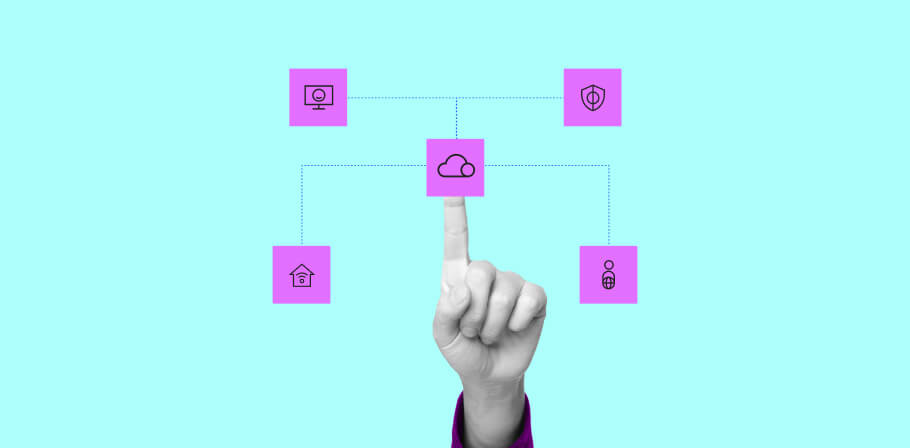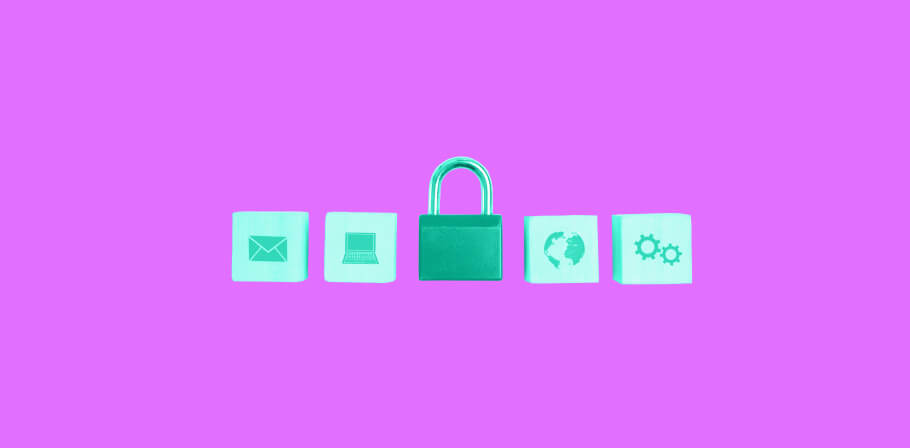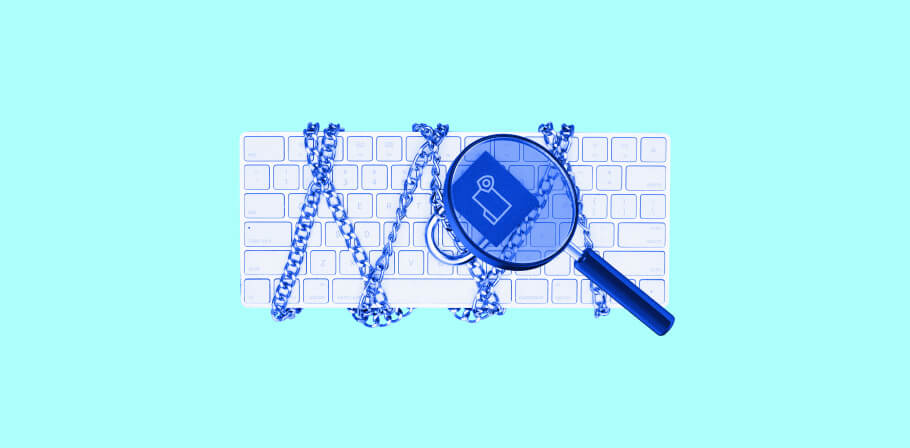In this article, you will learn why startups and medium-sized businesses (SMBs) should prioritize their cybersecurity in accounting, how to find a reliable cybersecurity provider, and why growing businesses should strengthen their online security postures in 2024.
What is cybersecurity in accounting?
Cybersecurity in accounting encompasses various practices and strategies that protect financial data confidentiality, integrity, and availability. Cybersecurity providers focus on safeguarding sensitive financial information, such as financial records, tax documents, client data, and other proprietary information from phishing attacks, ransomware, and data breaches.
Why is accounting cybersecurity a pressing matter?
The consequences of cyber attacks on financial data result in business downtime and severe reputational damage.
For instance, in 2022, two UK-based companies specializing in contractor services, SJD Accountancy and Nixon Williams, fell victim to ransomware attacks. The attacks disrupted their ability to remunerate thousands of contractors and caused customer-facing systems to go offline. As a result, many contractors experienced delays in receiving their payments. In June 2022, Flagstar Bank, one of the biggest financial providers in the U.S., suffered a huge data breach, leaking the social security numbers of nearly 1.5 million customers.
These recent incidents highlight the severe impact of such cyber breaches on the financial sector, meaning that financial cybercrime is a growing problem.
SET UP YOUR CYBERSECURITY IN ACCOUNTING WITH US
Take advantage of our 20+ years in cybersecurity delivery to secure your accounting operations.
What are typical cybersecurity services in accounting?
Typical cybersecurity services for accounting include a range of measures and practices designed to protect accounting systems, data, and processes. Here are the most common cybersecurity services in the market.
- Risk assessment: Comprehensive risk assessment identifies vulnerabilities and potential threats to accounting systems and data. This process involves evaluating the business' infrastructure, network security, access controls, and data handling practices to pinpoint weaknesses and potential risks.
- Security architecture design: Developing and implementing robust security architecture that includes network segmentation, firewalls, intrusion detection and prevention systems, and secure remote access mechanisms.
- Data encryption: Implementing encryption techniques to protect sensitive information at rest (stored) and in transit (during transmission). The encryption process ensures that even if data is intercepted or accessed by unauthorized parties, it remains unintelligible without the encryption keys.
- Access controls: Establishing strong access controls to restrict system and data access to authorized personnel. This practice includes implementing user authentication mechanisms, role-based access controls (RBAC), multi-factor authentication (MFA), and privileged access management (PAM) to minimize the risk of unauthorized access.
- Security monitoring and incident response: Continuously monitoring accounting systems and networks for suspicious activities, anomalies, and security breaches. Security monitoring involves employing intrusion detection systems (IDS), security information and event management (SIEM) tools, and real-time monitoring solutions.
- Data backup and disaster recovery: Implementing regular data backup processes to ensure that accounting data is regularly backed up and stored in secure locations. Additionally, establishing disaster recovery plans to recover critical systems and data following a cybersecurity incident.
Why consider partnering with an accounting cybersecurity provider?
Startups and SMBs often have limited financial resources, and building an in-house cybersecurity team with the necessary expertise is prohibitively expensive for most of these companies.
At the same time, financial data breaches directly threaten business growth and customer relations. Moreover, many industries, such as financial services or healthcare, have stringent regulatory requirements for data protection and privacy, such as GDPR, HIPAA, or PCI DSS.
Startups and SMBs often struggle to navigate such complex compliance landscapes. In this regard, partnering with a reliable cybersecurity provider comes in handy. Cybersecurity providers have specialized knowledge and expertise in securing sensitive data, including financial and accounting information. They understand the specific risks and vulnerabilities related to accounting systems and can implement robust security measures tailored to protect these assets.
Such partnerships allow startups and SMBs to focus on their core business functions while leaving cybersecurity tasks in the hands of professionals.
What are the benefits of engaging an accounting cybersecurity provider for small businesses?
Engaging a cybersecurity provider empowers small businesses to fortify their accounting security postures, achieve regulatory compliance, and focus on their core operations while leveraging the expertise and resources of dedicated professionals. Such partnerships are particularly beneficial due to the following reasons:
- Scalability and flexibility. Startups and SMBs often experience changing business needs. In this regard, service providers can adjust their offerings based on the organization's evolving requirements.
- Cost-effectiveness. Engaging an accounting cybersecurity provider is more cost-effective than hiring and maintaining an in-house cybersecurity team. Small businesses can get high-quality security services at a manageable cost without costly investments in cybersecurity technologies, staff training, and ongoing maintenance.
- Access to advanced tools and technologies. Cybersecurity service providers have access to cutting-edge technologies, such as artificial intelligence (AI) and machine learning (ML), endpoint detection and response (EDR), and identity and access management (IAM) tools that help detect and prevent cyber threats more effectively, enhancing the overall security posture of a business.
- 24/7 monitoring and support. Many cybersecurity service providers offer round-the-clock support to continuously monitor systems, detect suspicious activities, and provide timely incident response.
GET THESE BENEFITS TODAY
Learn how our cybersecurity services can protect your accounting operations so you can focus on business growth.
How to choose a reliable cybersecurity provider
Choosing a reliable cybersecurity provider to protect accounting requires careful consideration due to the specific nature of accounting-related data and processes. When evaluating potential candidates, consider the following key aspects to make an informed choice.
- Check their understanding of accounting systems: A reliable cybersecurity provider should have an in-depth understanding of accounting systems, software, and platforms commonly used in the industry. This knowledge enables them to identify vulnerabilities, implement appropriate security measures, and effectively protect financial data.
- Evaluate experience: Assess the expertise and experience of potential partners. Look for a skilled team of professionals with relevant certifications to handle the complexities of securing your accounting.
- Focus on established companies: Prioritize cybersecurity providers with a proven track record, particularly those with experience in your industry.
- Confirm their awareness of accounting regulations: The accounting industry is subject to various regulatory requirements, such as Sarbanes-Oxley Act (SOX), International Financial Reporting Standards (IFRS), and Generally Accepted Accounting Principles (GAAP).
- Assess compatibility: Evaluate their capabilities in handling your specific needs, such as data protection, network security, and compliance with industry regulations.
By adhering to these principles, you can streamline your search for a reliable cybersecurity provider that caters to your specific accounting needs.
Integral accounting cybersecurity competencies to look for
When approaching vendors, there are several key competencies to consider.
- Risk assessment and management: A reliable provider can conduct comprehensive risk assessments for accounting systems and data. Look for their expertise in implementing risk management frameworks and prioritizing risks based on their potential impact on financial data.
- Data protection and encryption: The provider should demonstrate proficiency in implementing encryption technologies to safeguard sensitive financial information. Inquire about their encryption methods, including end-to-end encryption, secure file transfer protocols, and encryption for data at rest and in transit.
- Access control and user authentication: The provider should have expertise in implementing multi-factor authentication, strong password policies, and role-based access controls. Inquire about their methods for managing user privileges, enforcing access restrictions, and monitoring user activity to prevent unauthorized access.
- Security monitoring and incident response: Look for providers that can perform real-time security monitoring of accounting systems. They should have advanced threat detection and prevention mechanisms, such as intrusion detection systems (IDS) and security information and event management (SIEM) tools.
- Regular security assessments and audits: A competent provider will conduct regular security assessments and audits to identify vulnerabilities and evaluate security control effectiveness. Inquire about their procedures for conducting security audits, penetration testing, and vulnerability assessments.
- Business continuity and disaster recovery planning: Make sure the provider has experience in developing and implementing such plans, including data backups, redundancy measures, and recovery strategies to minimize downtime and ensure the continuity of your accounting operations.
HIRE OUR CYBERSECURITY EXPERTS WITH EXPERIENCE IN YOUR INDUSTRY
We provide consultation and support services to SMBs, startups, and fast-growing businesses.
Questions to ask your potential cybersecurity vendor
When engaging a cybersecurity provider, it's important to assess their suitability and ensure they can meet your specific needs. Here are some questions you should ask to make an informed provider choice.
How we can help you
Here at EPAM Startups & SMBs, we offer diverse cybersecurity in accounting services based on our certified expertise, comprehensive consulting competence, and proven industry technologies in our stack.
Our vetted cybersecurity professionals have years of experience in IT security for accounting and provide comprehensive managed cybersecurity services to SMBs, startups, and established businesses.
SECURE ACCOUNTING IS BUSINESS-CRITICAL
Stay protected against emerging cybersecurity threats. Contact us today to learn how our services can help you.
Closing words
The current landscape of cybersecurity in the banking and financial industry is characterized by both evolving threats and heightened security measures. While technology has made accounting much easier to access and manage, online accounting is subject to many more threats than traditional paper-and-pen bookkeeping. As cyber threats become more sophisticated, protecting sensitive financial data and ensuring the integrity of accounting systems is crucial for the success of a growing business.
Your potential cybersecurity provider should have transparent communication channels and provide regular updates on security matters, incident response activities, and overall system health. Clear service-level agreements (SLAs) should be in place to define responsibilities, response times, and escalation procedures.
All in all, partnering with a reliable cybersecurity provider offers numerous benefits for startups and SMBs in their respective journeys toward secure and resilient accounting infrastructures. With the confidence that their accounting systems are secure, companies can demonstrate their commitment to safeguarding sensitive financial information and build trust with clients.

Since 2011, Dmitri has been helping business readers navigate the technology market through expert analysis and editorial work. At EPAM Startups & SMBs, Dmitri shows startups and SMBs across industries how to drive business value from their software engineering investments.
Since 2011, Dmitri has been helping business readers navigate the technology market through expert analysis and editorial work. At EPAM Startups & SMBs, Dmitri shows startups and SMBs across industries how to drive business value from their software engineering investments.
Explore our Editorial Policy to learn more about our standards for content creation.
read more